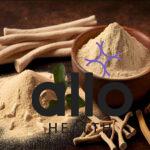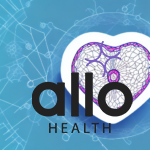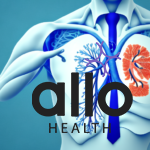Can You Drink Alcohol While Taking Tadalafil?

Allo Health is dedicated to personalized well-being, offering support and trusted information tailored to individual health goals. The platform emphasizes human-generated content, led by a distinguished medical team of experts, including physicians and sexual health specialists. Their commitment to credibility involves rigorous fact-checking, authoritative research, and continuous updates to ensure accurate, up-to-date information. Allo Health's unique approach goes beyond conventional platforms, providing expert-led insights and a continuous commitment to excellence, with user feedback playing a crucial role in shaping the platform's authoritative voice.

Dr Sanina Mansoor holds MBBS degree from Yenepoya university,Mangalore.She has 8 years of experience working as a medical officer at various health centres and medical colleges.
Why This Was Upated?
Our experts continually monitor the health and wellness space, and we update our articles when new information became available.
Updated on 21 December, 2023
- Article was updated as part of our commitment to diversity, equity, and inclusion.
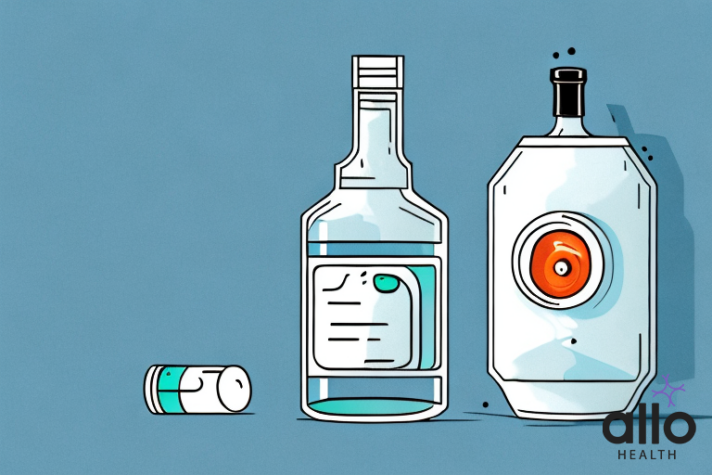
"The following blog article provides information about a drug or brand name drug and its potential effects or benefits. However, it is crucial to understand that this information is intended for general educational purposes only and should not be considered a substitute for professional medical consultation. It is highly recommended to consult with a qualified healthcare professional before making any decisions regarding medication, treatment, or healthcare management.
Book consultation
Individuals have unique medical conditions, and the information provided in this article may not be applicable to everyone. Only a qualified healthcare provider can evaluate your specific medical situation, taking into account your medical history, conducting appropriate tests, and providing personalized advice and recommendations. They are equipped to make informed decisions tailored to your individual needs.
It is crucial to emphasize that self-diagnosis, self-medication, or disregarding medical advice can have serious health consequences. This article may reference specific brand names or drugs for illustrative purposes. Mention of these names does not imply endorsement, recommendation, or guarantee of their efficacy or safety. The choice of medication should be based on discussions and individualized guidance from a healthcare professional who has a comprehensive understanding of your medical condition.
"Tadalafil is a medication that is commonly used to treat erectile dysfunction and pulmonary arterial hypertension. It is a prescription medication that is taken orally, usually before sexual activity. However, many people wonder whether it is safe to consume alcohol while taking tadalafil.
In this article, we will explore the effects of alcohol on tadalafil and whether it is safe for you to drink while taking this medication.
What is Tadalafil?
- Tadalafil is a medication primarily used to treat erectile dysfunction (ED) in men.
- It belongs to a class of drugs called phosphodiesterase type 5 (PDE5) inhibitors. The primary brand name for Tadalafil is Cialis.
Mechanism of Action
- The mechanism of action of Tadalafil involves its ability to inhibit the enzyme PDE5.
- This enzyme is found in various tissues in the body, but it is particularly concentrated in the smooth muscle cells of the penis.
- Inhibition of PDE5 leads to an increase in the levels of cyclic guanosine monophosphate (cGMP), a chemical messenger that plays a crucial role in dilating blood vessels.
- During sexual arousal, nitric oxide is released in the erectile tissue of the penis, which activates an enzyme called guanylate cyclase.
- This enzyme stimulates the production of cGMP, leading to the relaxation of smooth muscle cells in the penile arteries.
- The increased blood flow to the penis results in an erection.
- PDE5 normally breaks down cGMP, limiting its duration of action. By inhibiting PDE5, Tadalafil prolongs the effects of cGMP, allowing for a sustained dilation of the penile arteries and enhanced blood flow.
- This, in turn, helps men with ED achieve and maintain an erection suitable for sexual activity.
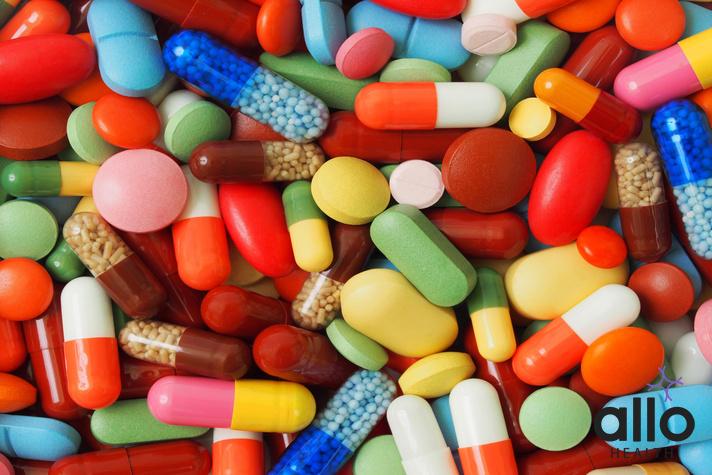
Tadalafil does not cause an automatic erection; sexual stimulation is still necessary for the medication to be effective.
Tadalafil has a longer duration of action compared to some other ED medications, with its effects lasting up to 36 hours.
As with any medication, it’s crucial to follow the prescribed dosage and consult with a healthcare professional for personalised advice.
Can I Consume Alcohol While On Tadalafil?
- While Tadalafil itself does not interact directly with alcohol, it’s important to exercise caution when combining the two.
- Both Tadalafil and alcohol can cause vasodilation (widening of blood vessels), and their effects might add up.
- Consuming excessive alcohol can lead to a drop in blood pressure, and combining it with Tadalafil may increase this effect.
- Moderate alcohol consumption is generally considered acceptable while taking Tadalafil.
- However, it’s crucial to be aware of how your body reacts to the combination and to avoid excessive alcohol intake.
- Excessive alcohol consumption not only increases the risk of side effects but can also impact sexual performance and overall well-being.
- It’s advisable to consult with a healthcare professional about your specific situation, especially if you have any pre-existing health conditions or are taking other medications. They can provide personalised advice based on your medical history and help ensure your safety while using Tadalafil.
Can I Drink Alcohol To Take Tadalafil?
- When taking Tadalafil or any medication, it is generally recommended to avoid consuming alcohol simultaneously.
- While moderate alcohol consumption may not cause severe interactions with Tadalafil, excessive alcohol intake can lead to potential side effects and may increase the risk of adverse reactions.
- Medications are typically advised to be taken with a full glass of water. Water helps facilitate the absorption of the medication in the body and ensures proper distribution.
- Alcohol, on the other hand, may interfere with the absorption and metabolism of certain drugs, including Tadalafil.
Tadalafil and Alcohol: Potential Risks
Combining alcohol with Tadalafil can pose certain risks and potential side effects. While moderate drinking may not cause significant issues for everyone, it’s essential to be aware of the potential risks.
- Hypotension (Low Blood Pressure): Both alcohol and Tadalafil can cause vasodilation, leading to a drop in blood pressure. Combining the two may result in an additive effect, increasing the risk of hypotension. Symptoms of low blood pressure may include dizziness, lightheadedness, and fainting.
- Dizziness and Drowsiness: Alcohol and Tadalafil can individually cause dizziness and drowsiness. When used together, these effects may be more pronounced, affecting your ability to concentrate and perform tasks that require alertness.
- Delayed Effect of Tadalafil: Excessive alcohol consumption may delay the onset of Tadalafil’s effect or reduce its effectiveness. This can impact the desired outcomes, such as achieving and maintaining an erection.
- Increased Heart Rate: Combining Tadalafil with alcohol may lead to an increase in heart rate. Individuals with pre-existing cardiovascular conditions should exercise caution, as this can exacerbate underlying issues.
- Risk of Dehydration: Alcohol is a diuretic, meaning it increases urine production and can contribute to dehydration. Dehydration may affect the absorption of Tadalafil and increase the risk of side effects.
- Worsening of Side Effects: Both Tadalafil and alcohol can cause side effects such as headaches, flushing, and gastrointestinal discomfort. Combining the two may intensify these side effects.
- Liver Function: Tadalafil is primarily metabolised in the liver, and excessive alcohol consumption can affect liver function. Individuals with liver conditions should exercise caution and consult their healthcare provider.
Note: Individual responses to the combination of Tadalafil and alcohol can vary. If you have any concerns or questions about consuming alcohol while taking Tadalafil, it is advisable to consult with your healthcare provider.
How To Manage Alcohol-Related Side Effects?
If you choose to consume alcohol while taking Tadalafil, it’s important to be aware of potential side effects and take measures to manage them responsibly. Some tips on how to manage alcohol-related side effects while on Tadalafil:
- Moderation is Key: Consume alcohol in moderation. Excessive alcohol intake can increase the risk of side effects and may interfere with the effectiveness of Tadalafil.
- Stay Hydrated: Alcohol can contribute to dehydration, which may exacerbate certain side effects. Drink plenty of water to stay hydrated and help mitigate potential issues.
- Be Mindful of Blood Pressure: Both Tadalafil and alcohol can cause a decrease in blood pressure. If you experience symptoms such as dizziness or lightheadedness, sit or lie down, and avoid activities that require alertness until the symptoms subside.
- Know Your Limits: Understand your tolerance for alcohol and how it interacts with Tadalafil. If you are unsure or have concerns, consult your healthcare provider for guidance.
- Watch for Dizziness or Drowsiness: Be cautious if you experience dizziness or drowsiness, as this can be intensified when alcohol is combined with Tadalafil. Avoid activities that require focus and attention until you are sure how the combination affects you.
- Monitor for Side Effects: Keep an eye out for any unusual or severe side effects, such as severe headaches, persistent dizziness, changes in vision, or prolonged erections. If you experience any concerning symptoms, seek medical attention.
- Consider Food Intake: Taking Tadalafil with or after a meal can help slow down the absorption of the medication, potentially reducing the impact of alcohol on its effectiveness.
- Consult Your Healthcare Provider: Before combining Tadalafil with alcohol, it’s advisable to consult your healthcare provider. They can provide personalised advice based on your health status, medical history, and the specifics of your Tadalafil prescription.
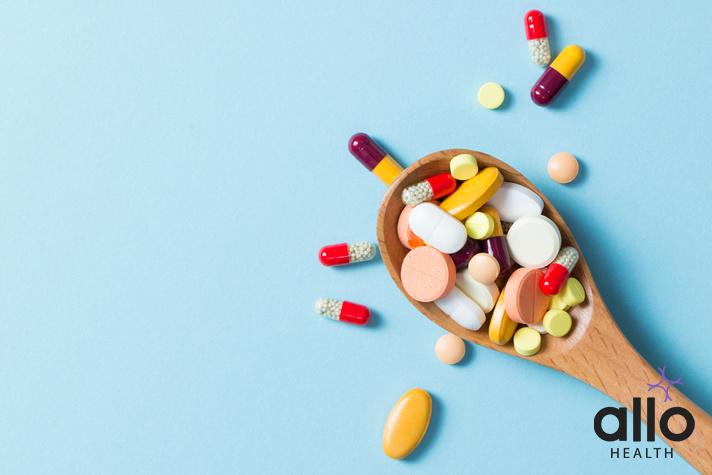
Remember that individual responses to the combination of Tadalafil and alcohol can vary, and what works for one person may not be suitable for another.
Other Potential Interactions
Tadalafil, like any medication, can interact with other drugs, potentially affecting their effectiveness or increasing the risk of side effects. It’s crucial to inform your healthcare provider about all the medications you are taking, including prescription, over-the-counter, and herbal supplements. Some common drug interactions associated with Tadalafil are as follows:
- Nitrate Medicine: Concomitant use of Tadalafil with nitrates or nitric oxide donors (commonly prescribed for chest pain or heart conditions) is contraindicated. The combination can lead to a dangerous drop in blood pressure.
- Alpha-Blockers: The use of Tadalafil with alpha-blockers (medications for hypertension or benign prostatic hyperplasia) may result in additive hypotensive effects. Caution is advised, and the dosage may need adjustment.
- Antihypertensive Medications: Tadalafil can enhance the hypotensive effects of antihypertensive medications. Adjustments in dosage may be necessary under medical supervision.
- CYP3A4 Inhibitors: Tadalafil is metabolized by the CYP3A4 enzyme in the liver. Concomitant use with strong CYP3A4 inhibitors (e.g., ketoconazole, ritonavir) can increase Tadalafil levels in the blood, potentially leading to an increased risk of side effects.
- CYP3A4 Inducers: Strong CYP3A4 inducers (e.g., rifampin) can decrease Tadalafil levels in the blood, potentially reducing its effectiveness.
- Antibiotics: Certain antibiotics, such as erythromycin, can inhibit the metabolism of Tadalafil, leading to increased Tadalafil levels in the blood.
- Antifungal Medications: Azole antifungals (e.g., itraconazole) can inhibit Tadalafil metabolism, potentially increasing Tadalafil levels.
- HIV Protease Inhibitors: Protease inhibitors used to treat HIV can interact with Tadalafil, affecting its metabolism and increasing the risk of side effects.
- Grapefruit Juice: Grapefruit juice can inhibit the metabolism of Tadalafil, leading to increased levels in the blood. It’s advisable to avoid grapefruit juice while taking Tadalafil.
- Other Erectile Dysfunction Medications: Concurrent use of Tadalafil with other medications used for erectile dysfunction is generally not recommended due to the potential for additive effects.
Key Takeaways
- Tadalafil is a medication used for erectile dysfunction and pulmonary arterial hypertension, taken orally before sexual activity.
- The mechanism of action involves inhibiting the enzyme PDE5, leading to increased cGMP and improved blood flow for erections.
- Drinking excessive amounts of alcohol with Tadalafil may pose health risks, including potential hypotension and intensified side effects.
- Moderation in alcohol consumption is recommended, and it’s crucial to stay hydrated and be mindful of blood pressure.
- Tadalafil interacts with nitrates, alpha-blockers, and certain medications affecting CYP3A4 enzymes, requiring caution and potential dosage adjustments.
- Individual responses vary, and consulting a healthcare provider for personalized medical advice on alcohol consumption and potential drug interactions is essential.
Frequently Asked Questions
Q: Can alcohol consumption cause sexual dysfunction?
A: Excessive alcohol consumption can contribute to sexual dysfunction by affecting arousal, performance, and libido. It can interfere with physiological processes, leading to difficulties in achieving or maintaining an erection.
Q: What is the influence of alcohol on phosphodiesterase 5 inhibitors?
A: Alcohol can enhance the vasodilatory effects of phosphodiesterase 5 inhibitors (like Tadalafil), potentially causing a significant drop in blood pressure. This interaction emphasizes the importance of moderation when combining alcohol with such medications to avoid adverse effects.
Q: What are the potential risks of combining alcohol with Tadalafil?
A: The combination may lead to additive vasodilatory effects, potentially causing a drop in blood pressure, dizziness, and intensified side effects. Excessive alcohol can also impact sexual performance and overall well-being when taking Tadalafil.
Q: How can I manage alcohol-related side effects while on Tadalafil?
A: Moderation is key; avoid excessive alcohol intake. Stay hydrated, be mindful of blood pressure, and monitor for dizziness or drowsiness. Consulting with a healthcare provider for personalized advice on alcohol consumption and potential interactions is advisable.
Q: Can drinking alcohol affect the effectiveness of Tadalafil in treating erectile dysfunction?
A: Excessive alcohol consumption may delay the onset of Tadalafil’s effects or reduce its efficacy. It’s essential to strike a balance and avoid overconsumption to ensure optimal outcomes when using Tadalafil for erectile dysfunction.

